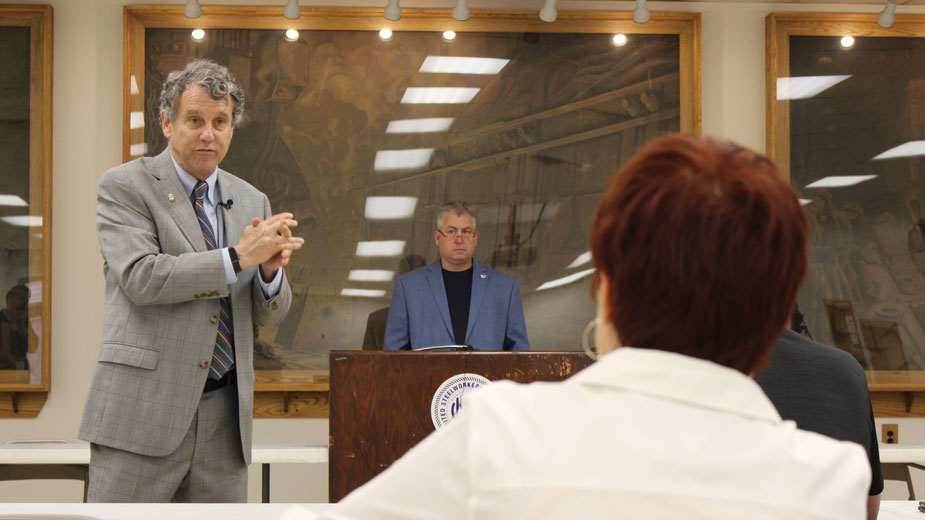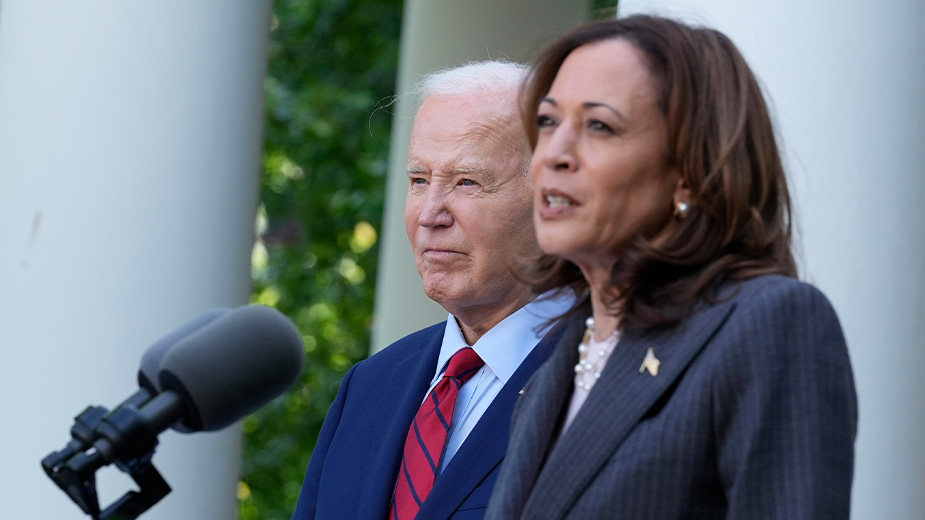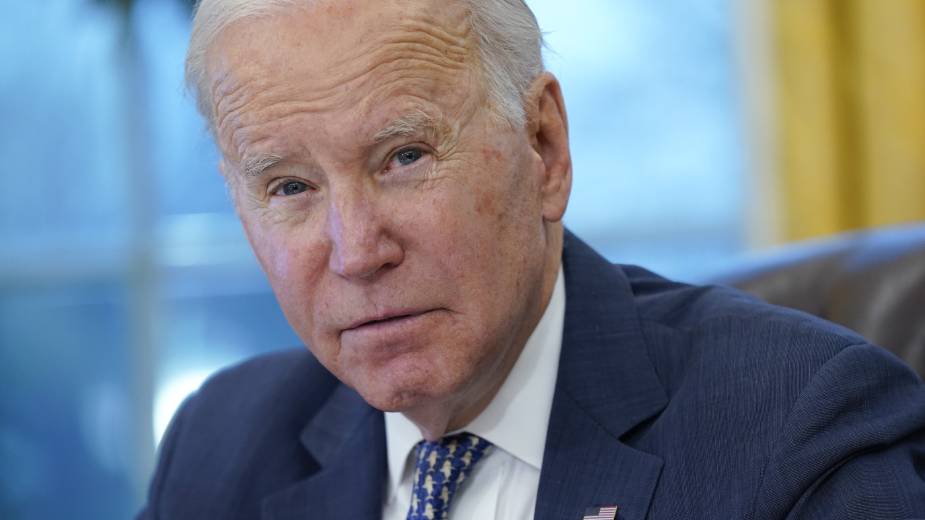Brown Introduces Bill to Shed Light on Outsourcing
WARREN, Ohio – A bill introduced by U.S. Sen. Sherrod Brown would require publicly traded companies to show the number of employees they have at each location, including those overseas.
The goal of the Outsourcing Accountability Act is to put pressure on companies that outsource their labor to countries such as Mexico or China, said Brown, D-Ohio. By mandating that these companies publish employee numbers, it would show whether a company has shed its workforce in the United States while growing it elsewhere around the world.
“Companies don’t want the bad publicity,” the senator said during a stop at the United Steelworkers Union Local 1375 union hall Monday. “The more light you can shine on it, the better it is, especially companies like GM. Their brand really matters to their consumer sales.”
Brown said this information helps communities, labor negotiations and the average worker by holding these companies accountable.
“This just closes the loophole to show where those jobs are. It is a simple filing and it’s not a ton of paperwork,” he said.
Brown referenced General Motors Co.’s decision in 2018 to end its second shift at its Lordstown Complex. The company announced its plans to build a new Chevrolet Blazer in Mexico the same day 1,500 workers were placed on layoff at the plant. In March of this year, GM placed Lordstown on “unallocated” product status, laying off the remaining 1,500 workers at the plant and shutting it down.
“I think if companies are told to do it, they will,” Brown said.
As for bill’s chances of passing both houses of Congress and being signed into law, the senator said it’s still too early to tell.
David Boyd, a steelworker who is employed at ArcelorMittal’s coke plant in Warren, asked the senator as to why there aren’t any punitive measures taken on companies that continue to pursue the policy of shipping jobs overseas.
He said that it’s unfair that companies ship work to low-wage countries that do not have the same environmental and safety standards as the United States.
“Our unions fought like crazy. I’ve been through strikes and shutdowns,” Boyd said. “Why aren’t we addressing that so we can have an equal playing field?”
Brown responded that part of the problem are the trade agreements signed by previous administrations, such as the North American Free Trade Agreement, now revised as the United States-Mexico-Canada Agreement, or USMCA.
The senator said these agreements did nothing to level the playing field for U.S. workers, since none of them addressed labor, environmental or safety standards in countries such as Mexico.
“That’s what I’m trying to get Trump to agree to,” he said. “He hasn’t yet.”
Brown said that any reworking of Nafta should come with provisions that increase labor, workplace conditions and environmental standards in these countries.
“Companies in the Mahoning Valley pay a lot of money to keep our air cleaner and our water cleaner – those companies in Mexico should have to do the same thing,” Brown said.
A renegotiated Nafta should contain language that penalizes products from companies in Mexico that violate these measures, he said.
Brown related the time he visited an automotive plant in Mexico five years after Nafta passed in 1993, he noticed that the complex didn’t have a parking lot.
“That’s because the workers who made the cars couldn’t afford to buy the cars,” he said. “That’s the problem with our trade agreements.”
Pictured: U.S. Sen. Sherrod Brown spoke at the United Steelworkers Local 1375 union hall Monday.
Copyright 2024 The Business Journal, Youngstown, Ohio.



